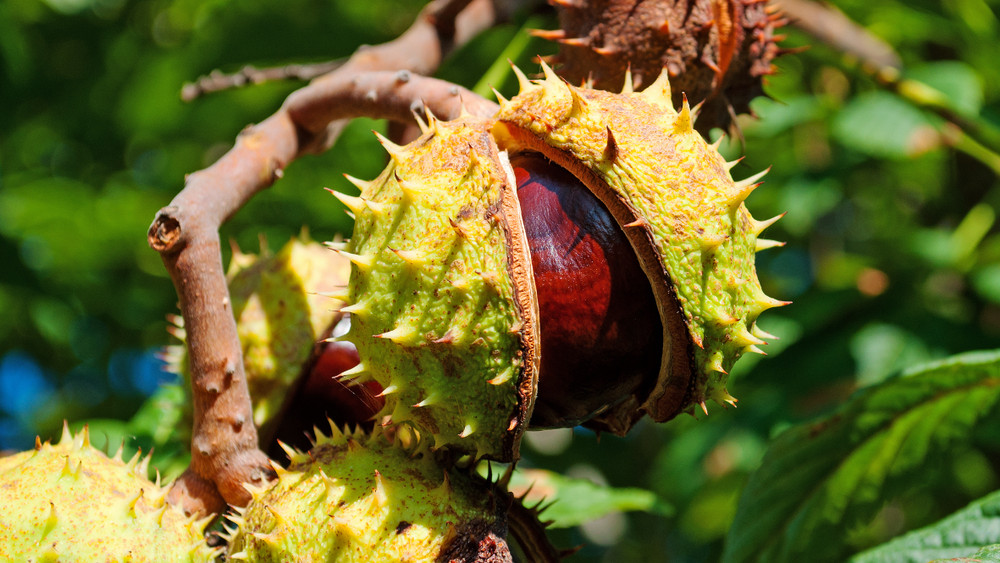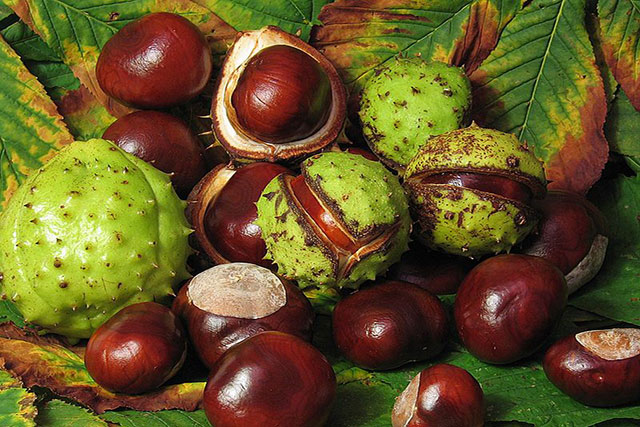Nature provides us with a powerful pharmacy of plant-based remedies, and one of the most impressive among them is the wild chestnut, commonly known as horse chestnut (Aesculus hippocastanum). Though inedible and toxic when raw, this remarkable tree holds potent healing properties—especially for vascular and circulatory health.
Let’s explore how wild chestnut can benefit the body, and just as importantly, when and how it should be used with caution.
What Is Wild Chestnut?
The wild or horse chestnut tree is native to the Balkans but widely cultivated across Europe and North America for both ornamental and medicinal purposes. Its seeds—large, glossy brown nuts encased in spiky green shells—are rich in compounds with therapeutic value, particularly aescin (escin), a complex mixture of saponins that plays a central role in its healing properties.
Important Note: Wild chestnuts are not the same as edible sweet chestnuts (Castanea sativa) and should never be eaten raw due to toxicity.
Key Benefits of Wild Chestnut for the Body
1. Improves Circulation and Treats Varicose Veins
Wild chestnut extract is one of the most researched natural remedies for chronic venous insufficiency (CVI)—a condition in which blood pools in the legs due to poor venous return. Aescin strengthens vein walls, improves elasticity, and reduces swelling and discomfort.
2. Reduces Swelling and Inflammation
The anti-inflammatory action of aescin makes horse chestnut beneficial for conditions involving fluid retention, leg swelling, and lymphedema. It also helps reduce inflammation in hemorrhoids, making it a popular ingredient in topical creams.
3. Strengthens Blood Vessel Walls
Horse chestnut may help reinforce the integrity of capillaries and small blood vessels, potentially reducing symptoms of easy bruising, spider veins, or capillary fragility.
4. Antioxidant and Anti-edema Effects
Wild chestnut contains flavonoids and other antioxidants that protect the body from free radical damage and support tissue repair, especially in vascular structures.
5. May Relieve Joint Pain
Some herbalists use horse chestnut topically for rheumatic pain, arthritis, and muscle soreness, though scientific evidence in this area is still limited.
How to Use Wild Chestnut Safely
Wild chestnut is typically available in several forms:
- Standardized Extracts: Usually in capsules or tablets containing 16–20% aescin.
- Topical Creams and Gels: Used for varicose veins, swelling, or hemorrhoids.
- Tinctures: Liquid herbal extracts used under professional supervision.
Dosage Tip: Look for supplements that are standardized to contain a specific percentage of aescin and labeled as “free of esculin”, a toxic compound that can harm the liver and kidneys.
Contraindications and Side Effects
Despite its many benefits, wild chestnut must be used with care:
❌ Do Not Consume Raw Seeds or Bark
They contain esculin, which is toxic and can cause nausea, vomiting, diarrhea, paralysis, or even death in large quantities.
❌ Not Safe for Everyone
Avoid wild chestnut (internally) if you:
- Are pregnant or breastfeeding
- Have kidney or liver disease
- Take blood-thinning medications (e.g., warfarin) – aescin may increase bleeding risk
- Have a known allergy to horse chestnut or similar plants
⚠️ Possible Side Effects
- Mild gastrointestinal upset
- Dizziness or headache
- Itching or rash (especially with topical use)
Always consult a healthcare professional before starting wild chestnut—especially if you’re taking medication or have a pre-existing condition.

Wild chestnut is a time-honored herbal remedy, especially known for its powerful effects on blood vessels, swelling, and venous health. When used correctly—under the guidance of a qualified practitioner—it can offer natural relief for conditions like varicose veins, leg pain, and hemorrhoids. But like many potent herbs, it comes with risks if misused, so caution and education are key.
Have you tried wild chestnut for leg swelling or circulation?
Share your experience in the comments!

